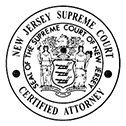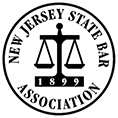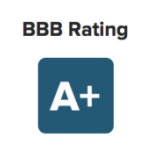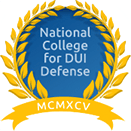Elizabeth NJ Graves Act Offense Defense Attorneys
The Graves Act, originally enacted in 1981, creates mandatory minimum periods of incarceration when certain criminal offenses are committed with a firearm. What this means is that if you plead guilty or are otherwise convicted of a Graves Act eligible charge, you will be required to satisfy a period of parole ineligibility before there is any chance of release from prison. This is what is commonly referred to as a mandatory minimum term of incarceration. A flat sentence is not available when the Graves Act applies. If you have been charged with a weapon offense involving an illegal firearm, you need the very best defense team you can afford on your side. The reason is quite simply, if you do not avoid a conviction to the Graves Act offense you are facing, you will have to serve a prison term of at least three (3) years. The attorneys at our firm have significant experience handling firearm charges, including decades serving as prosecutors, and over 100 years of collective experience handling weapon related cases. Call us at 908-272-1700 to speak to an attorney free of charge.
Criminal Charges Falling Under The Graves Act
N.J.S.A. 2C:43-6(c) sets forth those criminal offenses that trigger the mandatory minimum/parole ineligibility mandated by the Graves Act. Any person that possesses a firearm during the commission, attempted commission, or flight from a qualifying offense is subject to these sentencing requirements. The following charges fall within this Graves Act:
- Possession of a Firearm for Unlawful Purpose
- Murder
- Manslaughter
- Aggravated Assault
- Kidnapping
- Aggravated Sexual Assault
- Aggravated Criminal Sexual Contact
- Robbery
- Burglary
- Escape
- Possession of a Prohibited Firearm (e.g. Sawed-Off Shotgun, Defaced Firearm, Machine Gun)
- Possession of a firearm while committing a Drug Offense
- Unlawful Possession of a Handgun
- Unlawful Possession of a Shotgun or Rifle
- Certain Person Not To Possess A Weapon
The sentencing requirements imposed when a firearm is used in one of these offenses do not, however, apply where the weapon is “in the nature of an air gun, spring gun or pistol or other weapon of a similar nature in which the propelling force is a spring, elastic band, carbon dioxide, compressed or other gas or vapor, air or compressed air, or is ignited by compressed air, and ejecting a bullet or missile smaller than three-eighths of an inch in diameter, with sufficient force to injure a person.”
What is the Minimum Sentence Required Under This Law?
The “minimum sentence” referred in the Graves Act is that term of imprisonment during which the defendant is ineligible for parole or any form of early release. If a Defendant is convicted of a qualifying offense and used or possessed a firearm, they are required to serve is minimum sentence (a.k.a. mandatory minimum term/period of parole ineligibility). The minimum sentence that must be imposed for a first degree, second degree or third degree Graves Act violation is at least 3 years. More specifically, the minimum term is the greater of one-third to one-half of the sentence imposed or three (3) years. For a crime of the fourth degree, the period of parole ineligibility and/or mandatory minimum sentence is 18 months.
When Can An Extended Term Be Imposed Under The Graves Act?
An extended term applies when the person being sentenced has been previously convicted of a crime covered by the Graves Act (i.e. repeat violator). The Defendant is entitled to a hearing if he or she wishes to contest that the prior conviction was for a Graves Act offense or that a firearm was used during its commission. The Prosecution is then required to prove, beyond a reasonable doubt, that the Defendant has in fact been previously convicted of an offense covered under the Graves Act and that the Defendant used or possessed a firearm during the commission, attempted commission, or flight from that offense.
Is Plea Bargaining Allowed In A Graves Act Case?
Although the New Jersey Supreme Court has placed limitations on plea bargaining of Graves Act charges, there are four exceptions that apply to this restriction. Firstly, if the Prosecutor represents on the record that there is insufficient evidence to warrant a conviction or that an acquittal is so likely that a plea is required in the interest of justice. Secondly, if the Defendant is pleading guilty to a lesser offense that imposes the same period of parole ineligibility. Thirdly, if the Prosecutor represents on the record that the plea bargain is crucial in order to gain the Defendant’s cooperation. Finally, the mandatory minimum sentence can be avoided if the Judge determines that this relief is required in order to fulfill the interests of justice.
Must The Firearm Be Operable In Order For 2C:43-6(c) To Apply?
The state is NOT required to prove that the firearm used in the commission of the crime was operable, meaning that even an unloaded firearm or a firearm incapable of being discharged can trigger the Graves Act (although an exception exists for guns that have been so altered as to be completely and permanently unable to fire). A fake or a toy gun does not, however, fall under this law.
Can Accomplice Liability Trigger The Requirements Of The Graves Act
A recurring issue in Graves Act cases is whether or not one criminal defendant can be sentenced under the Graves Act based on a theory of accomplice liability. What we are referring to is the question of whether N.J.S.A. 2C:43-6(c) applies to someone who did not personally possess or use the firearm but possessed a shared purpose with a co-defendant whom he/she knew or reasonably should have known was armed.
If you or a loved one has been charged with or convicted of any of the crimes that trigger the Graves Act (listed above), it is crucial to retain experienced legal counsel. The Graves Act can substantially increase the amount of time that a Defendant spends incarcerated. An experienced criminal defense attorney at the Law Offices of Jonathan F. Marshall may be able to work with the prosecutor and the Judge to waive the application of the Graves Act, limiting or altogether eliminating the minimum sentence. Call our office at 908-272-1700 to speak to attorney so that this objective may be accomplished.












